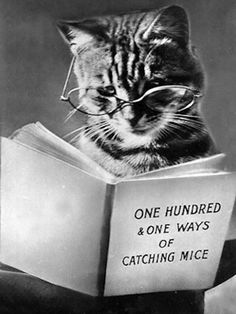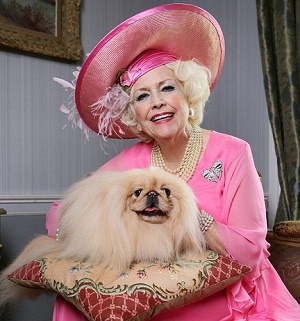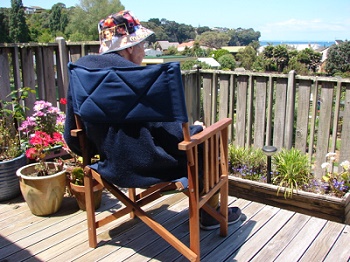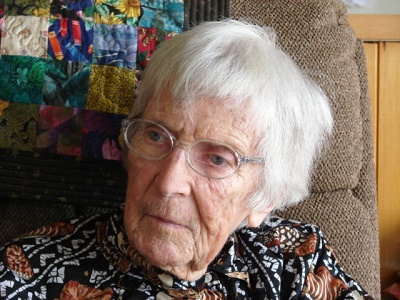 In my writing tips I've talked about writing your life stories and how to make a start but one of the other most common questions I'm asked is 'I want to write a good ripping fictional story and don't know how to begin.' If you're planning to write a story of high-seas adventure, or a dramatic historical novel, or perhaps a murder mystery - then having a sense of story line and the characters that will populate and drive it, is pretty much an essential. Crime writer Val McDermid (and that's not her picture here, by the way) has this to say about how she starts her books: "When I start a book, I have an idea of the story arc and I’ve spent most of my prep time thinking about the characters: how they’re going to conduct themselves, how they got to be the person they are today, how I feel about them. I spend the first month feeling my way into the book, getting a sense of its world and learning its nooks and crannies. Then it picks up pace and I can’t escape it. Seven days a week, its presence dominates my head. It’s a very intense period and I’m not very good at switching off." There are some important words here from Val, for example, 'story arc' and 'prep time'. Often there will be a strong story structure behind a good book that really hooks you in and romps along with you from page to page, so much so that you hate to put it down to make dinner and can't wait to get back to it afterwards, and planning out how the story will look (literally as an arc which you can draw on paper if you want to - here's a short write-up about a story arc by Ali Hale, and how to construct it ) and taking time to prepare before you start writing goes a long way towards ensuring that yarn you want to tell is a ripping one. I'm also asked what comes first, character or story?  Phew. Well, character drives plot, and plot can drive character - but my advice would be character. As Val also says, she spends time thinking about her players, who they are and where they have come from before they enter the pages of her story. Let's face it. Lives are propelled along by actions, which have reactions and consequences - and of course all avid murder mystery readers know that 'in the beginning, there was the crime'. Someone committed that crime and their action sets the wheels turning. And I reckon you know you've got a winner when, as Val says, the writing just takes off with a life and mind of its own, and it's all you can do as a writer to keep up with it.
0 Comments

I wish I could say that my writing day is as interesting as that of famous romance novelist Barbara Cartland.
She wrote over 700 romance novels lying on a sofa for several hours a day, telling her stories out loud to a secretary who sat with her, took down words in shorthand and then typed up the day's dictation. My writing day isn't nearly as glam. I don't have a sofa that would be comfortable to lie on for any length of time, nor can I afford a secretary or cajole one of my friends into taking dictation for me while I narrate my potboilers. Unfortunately I don't have lovely outfits to wear either, like hers, so must throw on an old sweatshirt, faded track pants, my sheepskin boots I've had since I was 18 that now look like Egyptian mummies and then struggle to keep my old, black, dribbly cat Little Boy from clawing his way onto my lap. My day goes like this. I get up about 6am and fumble around getting myself washed and dressed. That can take a while depending on what occurred the night before. Of course we envisage writers out carousing or drowning creative sorrows to all hours at the local watering hole, but for me, it's whether I stayed up after 9.30pm to watch a movie on TV. Sigh. Then I have to feed the animals otherwise they go feral. That's two cats, flocks of birds on the front lawn, and the lions-tigers-and-bears in the bush. I put the coffee on. Unlike the wonderful Dorothea Brande who suggests (in her book Becoming a Writer - originally published in 1934, this is still an inspirational book for writers) that I make my coffee the night before and put it into a thermos to save on valuable writing time, I like mine fresh and hot otherwise I simply cannot go on. Maybe that part has a Cartland-esque ring to it. OK then I make a piece of toast with butter and honey on it, and I take all of this to the computer which I've already turned on so it's ready to go. Time to work, if I can avoid the temptation to go onto Spotify to 'Discover' the latest songs it selects just for me, or dawdle about on facebook to see what everyone's been up to overnight and whether they've been out carousing to the wee hours. OK then I start to work. I always do best in the mornings. By this time it's about 7.30am. Some writers aim to complete a number of pages each day. I just aim to do something. I'm not too strict with myself but I do insist on production. Some days that's 4 pages, others its 12, A-4 pages, double spaced. I don't go back and edit what I've done that day, and I may not do that until much later. The most important thing for me on writing day is to get it down using 'creative Jane's brain' . Sort out the nuts and bolts later because that requires 'editor Jane's brain.' By about 1030am I need a cup of tea so step away from the keyboard, boil the billy, have a couple of cookies and this is danger time, by golly, because I usually take my tea out on the deck and wander about. Little Boy likes to visit so we do. He tells me about his morning adventures in the garden and I tell him how many words I've done. Then I look around and think the bird bath needs more water, so I do that. Something needs tidying on the deck so I do that and then think, 'I'll just go down and check the mail ...' and that's danger time because 'sneaky Jane's brain' is slyly making her way into my day, surreptitiously suggesting all these things I can do apart from writing. It takes a strong person to say 'no' we're not going for a walk right now and 'no' we're not going to do some other fun little thing right now because we are writing! I suppose even Ms Cartland had these difficulties and I have to say I'm impressed that she stuck it out on the couch for so long each day, dictating and producing so many books. What she had, and something I strive for, is daily discipline, because if we don't just sit down and get on with it, we won't produce a word, let alone a page, or over 700 books. It's no use waiting for the muse to visit, or the weather to improve, or the coffee to brew. I wonder if wearing a big pink hat and a string of pearls would help.  I've been working on my memoir about my mother, Betty Jane, using my journal entries from the last year or so of her life as the basic structure of the book. Writing about Mom brings her back so powerfully that some days I'm almost positive she's standing behind me, reading over my shoulder, pointing out my grammar and spelling mistakes, as she always did when I asked her to read my work. Dad was Mom's primary caregiver and to give him a respite break, Mom would spend a week or so, from time to time, at a 'rest home' on the North Shore. She liked it because the place was small, had been there a long time and had a good reputation. As much as she enjoyed the break, she was always glad to come home to her house, flowers, and view of the sea. My mother loved her friends, old and new. She enjoyed people and her visits to the rest home provided opportunities for her to make new friends. The theme of enduring loyalties and deep bonds, whether forged in childhood or in adult life, is one of the strongest in the memoir so far. Here's an excerpt from my work in progress about Mom and friendships. 2 March 2009 Mom came back from the rest home this past week, very happy to be home again, enjoying the sea and view and her flowers on the deck. All in all it went very well in there. She made a new friend - Jenna - and when it was time to leave, Mom said to me, 'It's hard to make friends and then have to leave them.' She and Jenna said good bye as best they could, with their walking frames nose to nose, maneuvering along so as not to knock each other over. A couple of days before Mom came home, I I had a phone call from one of her oldest friends, my Aunt Frances. She and Uncle Jim live in the USA. Mom and Frances grew up together in the town of Fernandina Beach, Florida. Frances is not really my aunt. As is customary in the American South, my brother, sister and I have always addressed Mom's dearest girlfriends as 'Aunt' which meant I actually had several 'Aunts' in my life for quite a period of time. Aunt Frances would be our closest Auntie, almost a sister to my Mom. They have known each other since they were teenagers, hanging out on the beach at Fernandina. Mom treasures her old friends as they do her and I know it was very hard for Mom to leave America in 1963, to move to New Zealand, leaving all her good friends and everything that was familiar, far behind. Aunt Frances and I had a great talk on the phone. 'Tell your Mom that I love her,' she said, 'and I think of her so often and remember all the good, fun times we had together.' I understand that friendships are great treasures in Mom's life that she values beyond measure. At 81, she still takes much enjoyment from meeting new people. 'You're never too old to make friends,' she says.
http://www.janebissellwriting.com/blog#maya

My Mom, Betty Jane, was my best friend, my confidante, life coach and so much more.
When the going got tough, I could sit down with her, let it all hang out over coffee or a good gin and tonic and some jazz on the stereo, and she would inevitably offer advice that was subtle, yet spot on. I miss her every day. Lately I feel as if I've lost my way a bit. We do from time to time. The way forward isn't too clear, and I cannot back track, so I'm dithering on the sidewalk, tired of doing the same thing every day and wondering how I can find the courage and motivation to make a change. Times like this, I'd give anything to be able to go see Mom and have a chat. Last week I had an ant invasion. They came out behind the heat pump on the wall, trooped brazenly along the ceiling moulding and traversed the top of the bookshelf to their destination on the kitchen floor. I put out some ant poison which they fed upon with gusto, carrying it back to their nest as they should. However many succumbed on their homeward trek, falling into the bookshelf and covering books, ornaments, CDs, DVDs .. you name it. I mustered my domestic energy and set to with the vacuum, taking everything off the shelves to get up the dead ants. Standing on a chair to reach the top shelf, I discovered a book, way down the back which had belonged to Mom - 'Wouldn't Take Nothing for my Journey Now' by the wonderful Maya Angelou. I could not remember how on earth it had ended up there, and assumed I had taken it after we went through Mom's things and placed it on the shelf. The book's pages opened up a to chapter called 'New directions' which told the story of Mrs Annie Johnson of Arkansas who, in 1903, was pretty fed up with the way her life was going so she ventured out with a new business. After thought, careful planning, and jolly hard, consistent work, Mrs Johnson was very successful. Maya writes: "She had indeed stepped from the road which seemed to have been chosen for her and cut herself a brand-new path." I was telling a friend about this yesterday. She said, "That was your Mom helping out when you needed her. She was always there for you and just because she's no longer here doesn't mean she isn't with you. And what a feat she pulled off! She had to get the book onto the shelf, rally 20,000 ants, inspire you to clean up the mess and find the book!" Maya goes on to say, "Each of us has the right and the responsibility to assess the roads which lie ahead, and those over which we have traveled, and if the future road looms ominous or unpromising, and the roads back uninviting, then we need to gather our resolve and, carrying only the necessary baggage, step off that road into another direction." Thanks Mom. |
Archives
January 2024
|